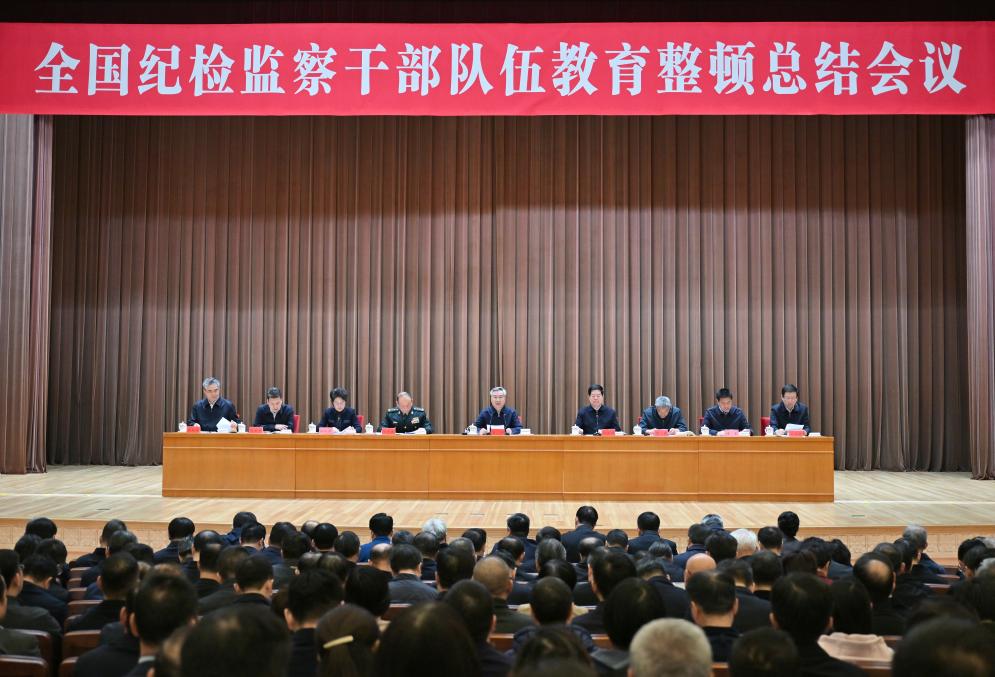
Li Xi, a member of the Standing Committee of the Political Bureau of the Communist Party of China (CPC) Central Committee and secretary of the CPC Central Commission for Discipline Inspection, addresses a teleconference on the education and rectification of the country's Party discipline inspection commissions and supervision agencies, in Beijing, capital of China, Feb. 28, 2024. (Xinhua/Yue Yuewei)
BEIJING, Feb. 28 (Xinhua) -- China's top anti-graft official Li Xi on Wednesday addressed a teleconference on the education and rectification of the country's Party discipline inspection commissions and supervision agencies, urging related personnel to strengthen self-improvement work.
Li, a member of the Standing Committee of the Political Bureau of the Communist Party of China (CPC) Central Committee and secretary of the CPC Central Commission for Discipline Inspection, said that discipline inspection commissions and supervision agencies at all levels should summarize their education and rectification experience, and promote the high-quality development of discipline inspection and supervision work in the new era.
Li said that through education and rectification practices, all discipline inspection and supervision officials have over the last year improved their ideological integrity, political integrity, discipline and capacity to perform their duties.
This has shown that education and rectification are timely, necessary and important practices, he stressed.
He called for continuous efforts to consolidate the results of education and rectification work, emphasizing that relevant officials should take strict steps to improve their ideological purity, loyalty and competence.
He called on discipline inspection commissions and supervision agencies to make further efforts to improve Party conduct, enforce Party discipline and fight corruption, and urged them to provide a strong guarantee for both China's transition into a great modern socialist country in all respects and the rejuvenation of the Chinese nation on all fronts through the pursuit of Chinese modernization. ■



